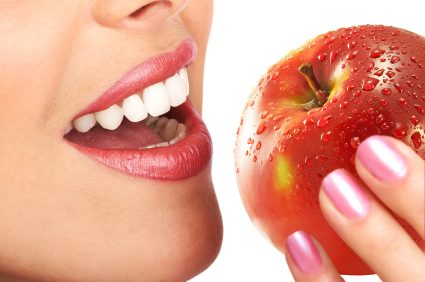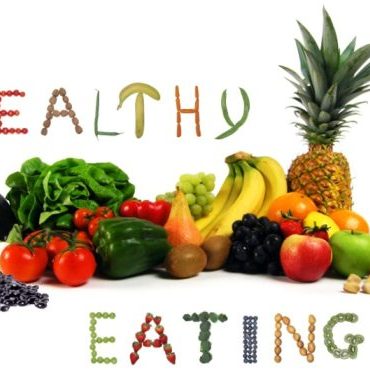
Our resident nutritionist answers your questions about sushi, getting that post-baby body into shape and healthy eating tips.
I have been on a low carb high protein diet, but am feeling weak and anxious all the time. I am eating about 1200 calories a day, exercising for an hour – and feel awful. I am losing weight but not feeling very good. What should I do?
Carbohydrates give you energy, and you are obviously not consuming sufficient to keep your blood sugar level from dropping. Consequently you are tired and jittery. Diets will help you lose weight, but you will not be able to stick to such a regime long term – they are too restrictive and are often do not supply the nutrients your body requires. Stop dieting and normalise your eating to a pattern you can live with.
You can eat everything but keep your portions small. Breakfast like a king, lunch like a queen and dinner like a pauper, with a small snack between meals. Include both carbohydrate and protein at breakfast eg. Poached egg on toast, cottage cheese on toast, yoghurt with fruit chopped into it; a sandwich or sushi for lunch; and soup or protein and a salad or vegetables for dinner. Your exercise regime sounds excellent, so continue doing an hour each day. Your weight will drop more slowly, but it is a regime you can maintain, and your weight loss will be “forever”.
What is cellulite and how can I get rid of it?
Cellulite occurs when fibrous bands of connective tissue, which give the skin support and elasticity, pull down the fat causing it to bulge up unevenly under the skin – giving it that dimply effect. The less fat you have, the less noticeable the cellulite.
Diet and exercise are essential to minimise cellulite. Improve your eating habits – get the proper nutrients from a balanced diet. Exercise regularly to improve circulation. Be cautious about the claims made by some of the spa treatments, the results disappear once you discontinue treatment.
- Endermologie uses gentle suction massage to temporarily loosen the connective tissue that gives fat and skin its bumpy look and to increase circulation in the area – both helping the skin appear smoother.
- Tri-Active LaserDermology combines mechanical massage (to loosen connective tissue) with a laser that heats the skin and the layers of fat beneath it in an attempt to break down the fat pockets and increase circulation. A cooling mechanism also lowers the skin’s temperature to prevent discomfort and swelling from the laser’s heat.
- Velasmooth treatments consist of radiofrequency waves (to break up fat pockets), followed by infrared heat (which warms the area to increase circulation) and massage, which help loosen connective tissue.
I have been overweight for years and struggled to get it down. I have tried every diet on earth. I would now like to do liposuction – what do you think?
Liposuction alone is not a solution to long term “slimness”. You have to alter you eating and exercise habits to maintain weight loss. After liposuction you will gain back the weight if you eat a lot and stop exercising.
Liposuction does not produce the “perfect” body. In a survey of 200 patients who underwent liposuction six to 24 months earlier, about 40% gained weight after liposuction, and most did not exercise or change their eating habits.
The majority, who maintained or lost weight, exercised more and ate healthier food than before the surgery. People who exercise and improve their diet after liposuction are 15 times more likely to drop clothing sizes and twice as inclined to like their appearance says plastic surgeon, Rod Rohrich at the University of Texas Southwestern Medical Centre in Dallas. Liposuction is only recommended if you are going to make permanent changes to your lifestyle – otherwise you are wasting your time dreaming and your money!
I have gone on a low carb diet, do you think I should take a vitamin supplement as I am not eating any fruit?
A low-carb diet restricts or eliminates many nutritious foods which provide many vitamins and minerals. I do not promote any eating regime long term which results in you omitting fruit and vegetables from your daily intake. Just to mention a few – you lose out on B vitamins and magnesium from grains, calcium and vitamin D from milk products, potassium from fruit and potatoes, and beta carotene from vegetables.
No pill can replace the thousands of health-enhancing phytochemicals found in intensely coloured fruit and vegetables. You might need to take a moderate dose multivitamin and mineral supplement daily. However, I do advocate you consuming a more balanced diet which includes foods from all the food groups.
I love popcorn; does it have any nutritional value? I have to have something to snack on – everything else is loaded in fat and calories.
The conventional wisdom is that popcorn is just a junky snack food – you are no better off than if you ate chips. A serving of popcorn counts as a serving of whole grain, right up there with the brown rice and whole wheat bread.
Of course, to count as a healthy serving, it must be air popped or light microwave popcorn. Movie popcorn generally contains oodles of fat and calories because it is popped in oil before any butter is even added.
Beware of pre-packaged popcorn. Some packaged brands that claim to be “air popped” may actually be so but are slathered with high calorie oil or cheese coatings. So be sure to check the fat content on the nutrition label. You must remember that popcorn does contain calories, so cannot be consumed liberally without it impacting on your weight.
Does microwaving reduce nutrients in any way?
I assume you mean microwaving vegetables. Micorwave cooking does affect veggies’ various nutrients in various ways, enhancing some and degrading others. Heat from any source, for instance, degrades Vitamin C.
But because microwaves cook vegetables more quickly than steaming or stove-top cooking, it likely leaves more of that vitamin intact. Compared to steaming or boiling, microwaving tends to help vegetables retain more vitamins because fewer are leached into the water. But, as many experts note, the best way to prepare vegetables is whichever way makes you most likely to eat them.

